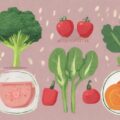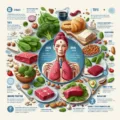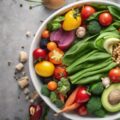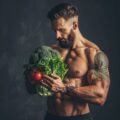Vitamin B12 has been a topic of much discussion in the wellness community. Essential for nerve tissue health, brain function, and the production of red blood cells, B12 is a powerhouse nutrient. But with the rise of plant-based diets and the prevalence of processed foods, deficiencies have become more common, prompting many to wonder if they should jump on the B12 supplement bandwagon.
Understanding Vitamin B12
Vitamin B12, also known as cobalamin, is naturally found in animal products and is essential for various metabolic processes. Unlike some other vitamins, B12 is not commonly available from plant sources, which means vegetarians and vegans need to be particularly mindful of their intake.
Signs of B12 Deficiency
Deficiency in vitamin B12 can lead to anemia, fatigue, muscle weakness, intestinal problems, nerve damage, and mood disturbances. Recognizing the signs early is key to addressing the issue before it leads to more serious health problems.
To Supplement or Not to Supplement?
Not everyone needs to supplement vitamin B12. Those who eat a balanced diet with sufficient animal products may already get all they need. However, certain populations, including the elderly, those with absorption issues, and individuals following a vegan or vegetarian diet, may benefit from supplementation.
Choosing the Right B12 Supplement
There are various forms of B12 supplements available on the market, including tablets, capsules, sublingual drops, and injections. When selecting a supplement, look for methylcobalamin or adenosylcobalamin, as these are the most active forms in the human body.
How Much B12 Do You Really Need?
The recommended dietary allowance (RDA) for B12 varies by age, but adult men and women are advised to get 2.4 micrograms per day. Pregnant and breastfeeding women have higher needs. Always consult with a healthcare professional before starting any new supplement regimen.
FAQs About Vitamin B12 Supplementation
Is it possible to get enough vitamin B12 from a plant-based diet?
It can be challenging to meet the RDA for vitamin B12 with a plant-based diet alone. Fortified foods and supplements are often recommended for those who do not consume animal products.
Can high doses of vitamin B12 be harmful?
Vitamin B12 is water-soluble, so it is generally considered safe, even at high doses. However, it’s always best to stick to the recommended amount unless advised otherwise by a healthcare provider.
What are the best food sources of vitamin B12?
The best sources are animal products such as meat, fish, poultry, eggs, and dairy. Some fortified cereals and plant milks also contain B12.
How do I know if I’m deficient in vitamin B12?
Symptoms may include fatigue, weakness, constipation, loss of appetite, and weight loss. Blood tests can confirm a deficiency.
Should children take B12 supplements?
Children who eat a varied diet may not need supplements. However, those following a vegetarian or vegan diet may require supplementation. Consult a pediatrician to determine the best course of action.









